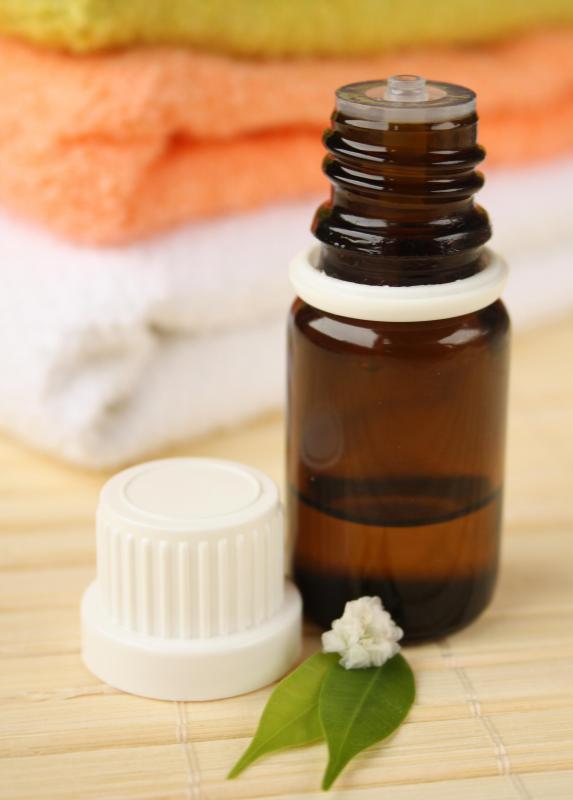At TheHealthBoard, we're committed to delivering accurate, trustworthy information. Our expert-authored content is rigorously fact-checked and sourced from credible authorities. Discover how we uphold the highest standards in providing you with reliable knowledge.
What is Black Cumin Oil?
Black cumin oil is the essential oil extracted from the seeds of Nigella sativa, a member of the Ranunculaceae family of flowering plants sometimes referred to as the buttercup family. A good deal of cross-referencing exists in terms of the common name of black cumin, however. First, while the seed is generally referred to as such, it is also known by several other common names, like Roman coriander and fennel flower. To add to the confusion, the same name is applied to a spice obtained from the fruit of Bunium persicum, a plant species belonging to an entirely different family. When speaking of black cumin oil specifically, however, the correct reference clearly belongs with N. sativa.
The seeds of this plant contain all of the essential fatty acids, and approximately 100 other constituents, many of which have not yet been identified. The medicinal properties of the seeds were recognized early in history, long before it was possible to extract and utilize the standardized oil. The ancient Greeks made preparations from the seeds to treat toothaches and headaches, and to help with digestion. The Persian physician, Avicenna, maintained that the seeds could cure various respiratory and gynecological disorders. The seeds were also found entombed with King Tut, are referenced in the Bible, and memorialized by the Prophet Mohammed who wrote that black cumin “is healing for all diseases except death.”

Modern science has validated many of these claims and more. For instance, studies have shown that the oil may be of value in treating a number of inflammatory disorders, such as rheumatism, due to the presence of thymoquinone. Another constituent found in black cumin oil, nigellone, appears to inhibit the effects of histamine in certain respiratory disorders, including asthma. The oil also exhibits anti-cancer potential owing to its ability to promote increased neutrophil activity in bone marrow and regulate interleukin production. In fact, a few animal-based studies have demonstrated these effects when mice treated with this oil have resisted aggressive attempts by researchers to induce cancer, while the control group readily surrendered.

Black cumin oil is available in capsule form, which should be refrigerated since it may become unstable if exposed to inconsistent temperatures. The oil is also formulated into topical salves, cough syrups, soaps, and various cosmetics. While it is generally considered safe for internal and external use, it should not be used during pregnancy or given to young children. Since black cumin may raise or lower blood glucose levels unpredictably, diabetics should avoid it. In addition, people with a history of liver or kidney disease should not supplement with the oil unless under the supervision of a medical professional.
AS FEATURED ON:
AS FEATURED ON:














Discussion Comments
@MikeMason-- You can just take it with cold water. Half of a teaspoon should be enough but make sure the oil is of high quality and from a trust-worthy supplier.
I don't drink cumin oil but I do add it to my shampoo to treat dandruff. I've also applied it on my skin before, mixed with honey to treat rashes. I've heard that it's good for eczema too but I don't have any experience with that.
Black cumin seed oil is very beneficial for lots of things.
My grandmother used to make tea from black cumin seeds and drink it when she had upset stomach. I've tasted it before and it tastes very bad, so I don't drink the tea.
Lately though, I've been suffering from acid reflux and I came across black cumin oil at the organic store. I bought a small bottle but I'm not sure how I should consume it.
Is it dangerous to drink it directly? Should I mix it with another oil like olive oil? Or should I take it with water?
I had never heard of black cumin oil until my chiropractor suggested I take a bath in it which was supposed to be relaxing. I felt breathless, and had severe pain and fever along with vomiting for three days. I am not sure if I had a bad reaction or if the dose prescribed was too high. I just know I have never felt such pain, fever and nausea.
while black cumin may be good for you, as with most herbal supplements, it is much better if you use a black cumin essential oil or actually put the spice on your food than try to take black cumin oil capsules. Pills are never as easily absorbed as the real thing.
I've never heard of black cumin seed oil before, although I have heard about the benefits of regular cumin. It sounds, though, like black cumin's benefits are better known and more extensive.
Post your comments